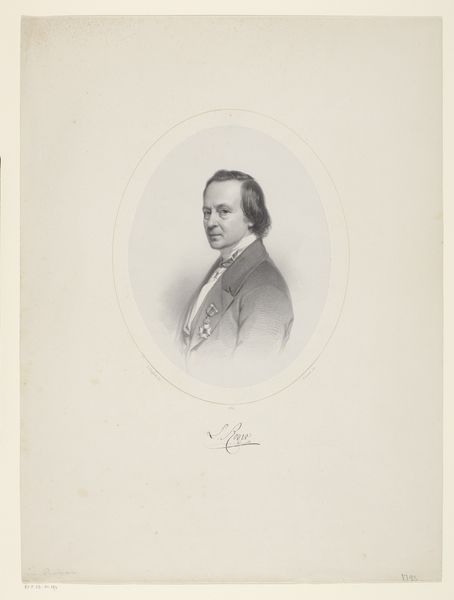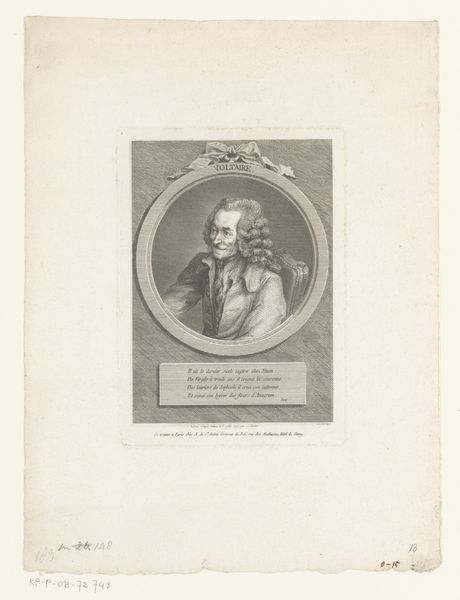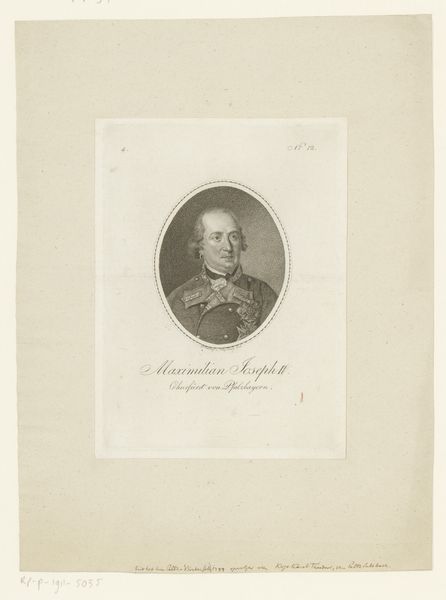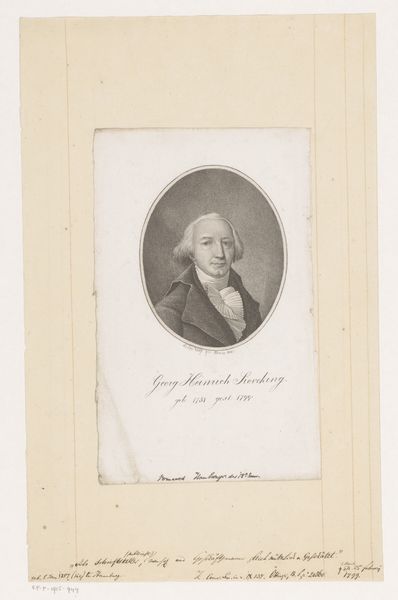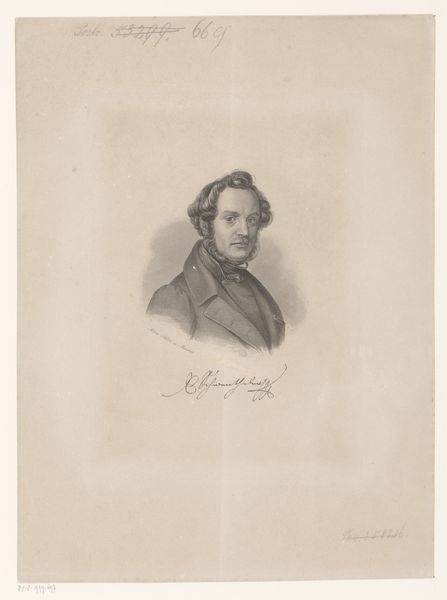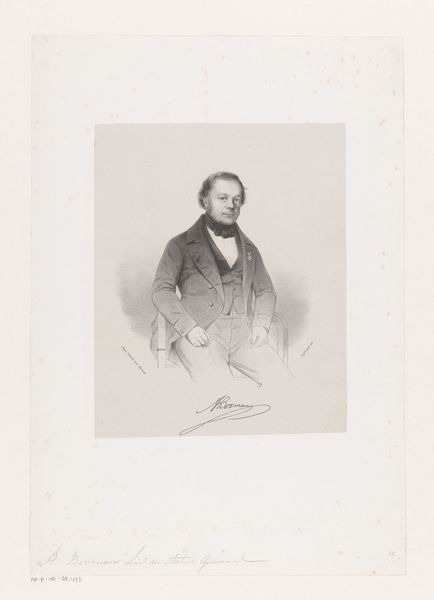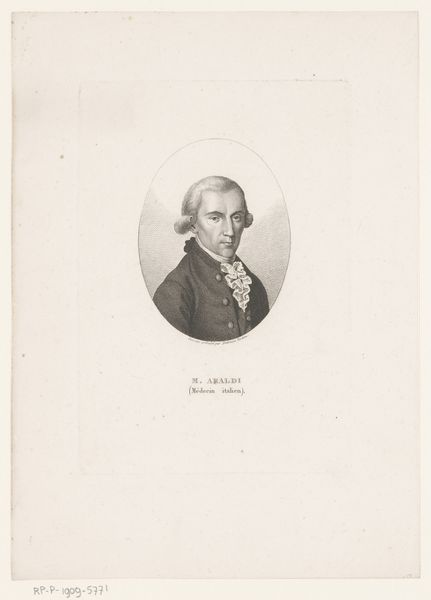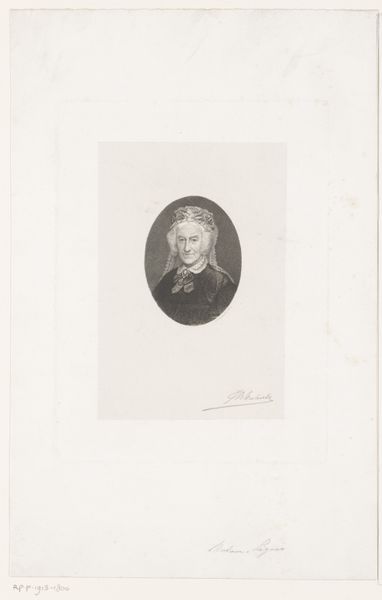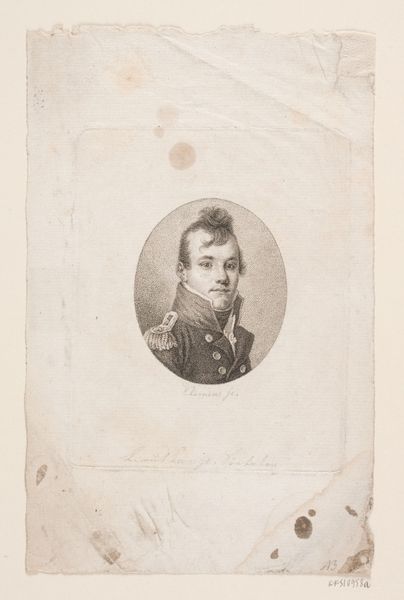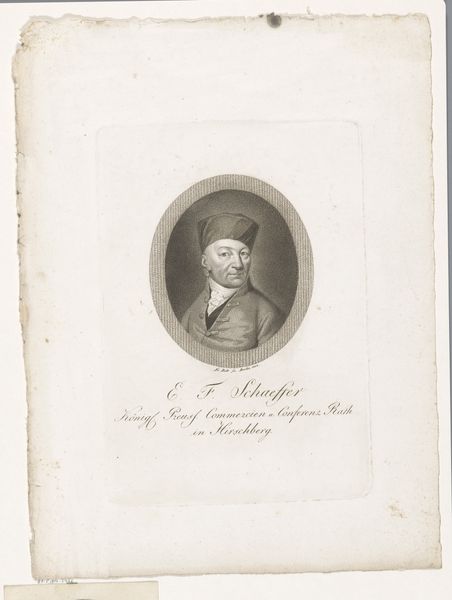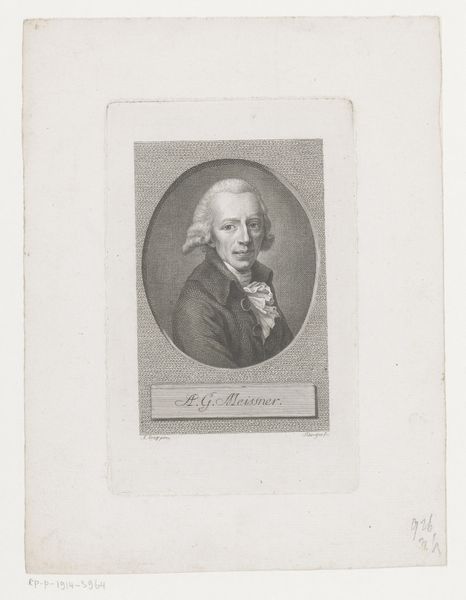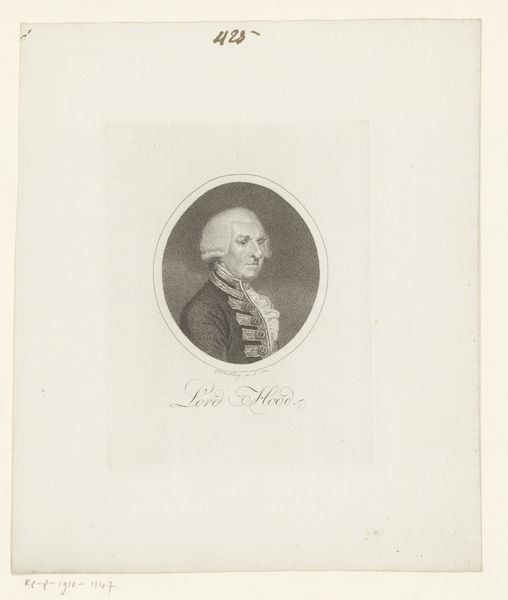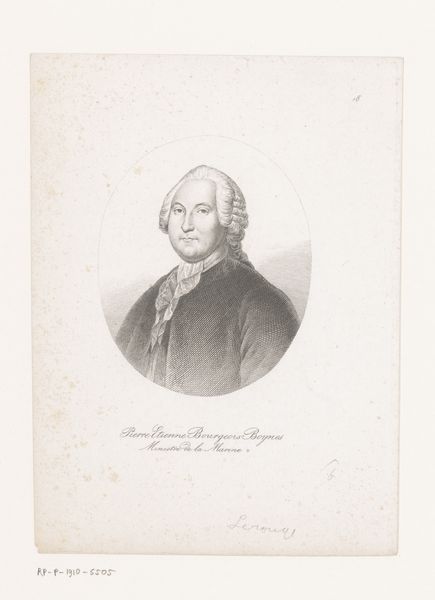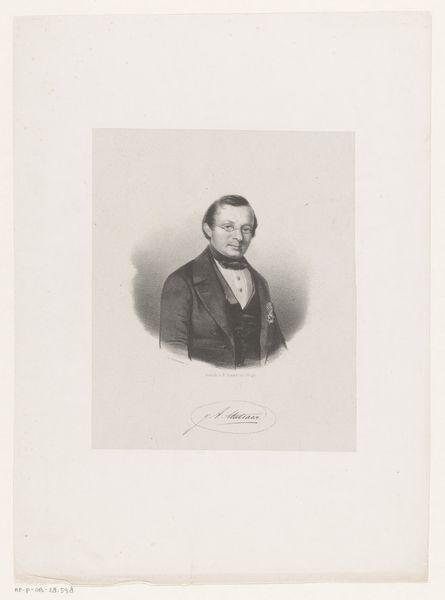
print, engraving
#
portrait
#
pencil drawn
#
neoclacissism
#
ink paper printed
# print
#
pencil sketch
#
old engraving style
#
history-painting
#
engraving
#
realism
Dimensions: height 106 mm, width 71 mm
Copyright: Rijks Museum: Open Domain
Carl Mayer made this print of Ludwig, Fürst von Oettingen-Wallerstein. Although the date of the work is unknown, the style reflects early 19th-century Germany, a period marked by the rise of nationalism and a fascination with aristocratic portraiture. The print presents Ludwig within an oval frame, a conventional choice for formal portraits that subtly reinforces the subject's elevated status, while the subject is adorned with medals and fine clothing. The print is a study in power and status, reflecting the rigid social hierarchies of the time. Artists like Mayer played a crucial role in visually upholding the social order, producing images that catered to the tastes and expectations of the elite. To fully appreciate this work, one might delve into the history of the Oettingen-Wallerstein family, the conventions of portraiture in 19th-century Germany, and the role of prints in disseminating images of power. These elements combined offer insight into the complex interplay between art, society, and institutions.
Comments
No comments
Be the first to comment and join the conversation on the ultimate creative platform.
